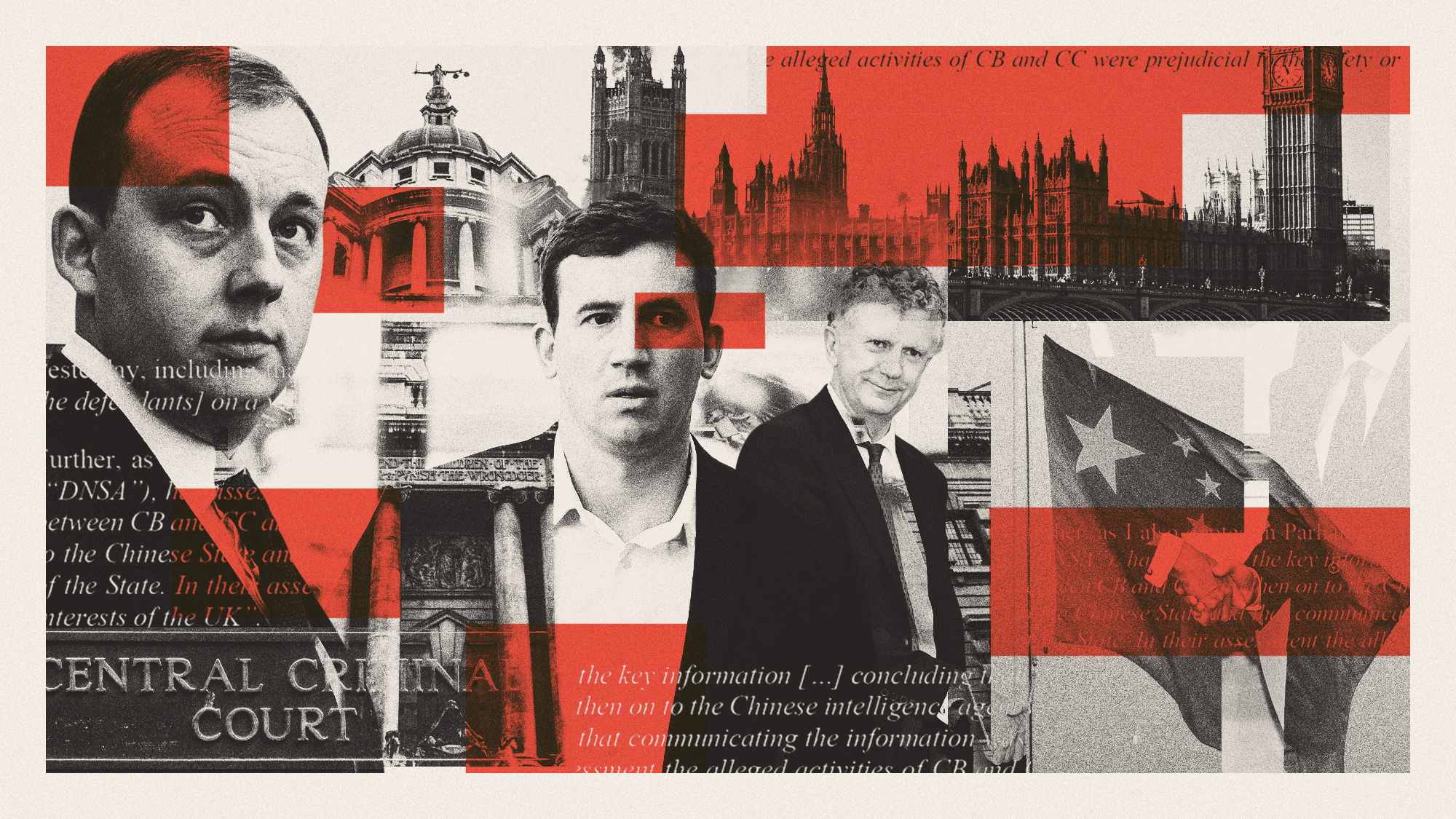U.S. warns noncommittal China against aiding Russia during 'intense' and 'candid' Rome meeting

A free daily email with the biggest news stories of the day – and the best features from TheWeek.com
You are now subscribed
Your newsletter sign-up was successful
White House National Security Adviser Jake Sullivan met with his Chinese counterpart in Rome for seven hours on Sunday, in a meeting U.S. officials described as "intense" and "candid." The meeting was planned weeks ago as a follow-up to last November's virtual summit between President Biden and Chinese leader Xi Jinping, but Russia's invasion of Ukraine dominated the statements from Chinese and U.S. officials after Monday's meeting.
Sullivan "directly and very clearly" told China's Yang Jiechi that the U.S. has deep concerns about China's "support to Russia in the wake of the invasion, and the implications that any such support would have for" China's relationship with the U.S. and its "allies and partners in Europe and the Indo-Pacific," State Department spokesman Ned Price said Monday. Biden administration officials did not reveal any specific warnings Sullivan issued to Yang.

The U.S. said Sunday that China has conveyed willingness to help Russia economically and militarily after Moscow asked for drones, pre-packaged food kits for troops, and other assistance in its Ukraine war, CNN reports. Russia and China have denied this, and Chinese government spokesman Zhao Lijian said Monday that the reported Russian aid requests were more "false information" the U.S. is spreading "against China on the Ukraine issue, with sinister intentions."
The Week
Escape your echo chamber. Get the facts behind the news, plus analysis from multiple perspectives.

Sign up for The Week's Free Newsletters
From our morning news briefing to a weekly Good News Newsletter, get the best of The Week delivered directly to your inbox.
From our morning news briefing to a weekly Good News Newsletter, get the best of The Week delivered directly to your inbox.
Chinese officials said after the Sullivan meeting that Yang had "pointed out that the situation today in Ukraine has reached a stage that the Chinese side does not want to see," that "all parties should exercise maximum restraint, protect civilians, and prevent a large-scale humanitarian crisis," and that "China has always advocated respecting the sovereignty and territorial integrity of all countries." China still did not criticize Russia for its invasion.
Xi is said to be unhappy about Russia's bloody invasion and China's failure to predict it, "but a consensus is forming in Chinese policy circles that one country stands to emerge victorious from the turmoil: China," The New York Times reports. "After a confused initial response to Russia's invasion, China has laid the building blocks of a strategy to shield itself from the worst economic and diplomatic consequences it could face, and to benefit from geopolitical shifts once the smoke clears." Not everyone is convinced Xi can strike that balance.
A free daily email with the biggest news stories of the day – and the best features from TheWeek.com
Peter has worked as a news and culture writer and editor at The Week since the site's launch in 2008. He covers politics, world affairs, religion and cultural currents. His journalism career began as a copy editor at a financial newswire and has included editorial positions at The New York Times Magazine, Facts on File, and Oregon State University.
-
 The EU’s war on fast fashion
The EU’s war on fast fashionIn the Spotlight Bloc launches investigation into Shein over sale of weapons and ‘childlike’ sex dolls, alongside efforts to tax e-commerce giants and combat textile waste
-
 How to Get to Heaven from Belfast: a ‘highly entertaining ride’
How to Get to Heaven from Belfast: a ‘highly entertaining ride’The Week Recommends Mystery-comedy from the creator of Derry Girls should be ‘your new binge-watch’
-
 The 8 best TV shows of the 1960s
The 8 best TV shows of the 1960sThe standout shows of this decade take viewers from outer space to the Wild West
-
 What is ‘Arctic Sentry’ and will it deter Russia and China?
What is ‘Arctic Sentry’ and will it deter Russia and China?Today’s Big Question Nato considers joint operation and intelligence sharing in Arctic region, in face of Trump’s threats to seize Greenland for ‘protection’
-
 Is the Chinese embassy a national security risk?
Is the Chinese embassy a national security risk?Today’s Big Question Keir Starmer set to approve London super-complex, despite objections from MPs and security experts
-
 Did Trump just end the US-Europe alliance?
Did Trump just end the US-Europe alliance?Today's Big Question New US national security policy drops ‘grenade’ on Europe and should serve as ‘the mother of all wake-up calls’
-
 Taiwan eyes Iron Dome-like defence against China
Taiwan eyes Iron Dome-like defence against ChinaUnder the Radar President announces historic increase in defence spending as Chinese aggression towards autonomous island escalates
-
 Why did the China spying case collapse?
Why did the China spying case collapse?Today’s Big Question Unwillingness to call China an ‘enemy’ apparently scuppered espionage trial
-
 What will bring Vladimir Putin to the negotiating table?
What will bring Vladimir Putin to the negotiating table?Today’s Big Question With diplomatic efforts stalling, the US and EU turn again to sanctions as Russian drone strikes on Poland risk dramatically escalating conflict
-
 The mission to demine Ukraine
The mission to demine UkraineThe Explainer An estimated quarter of the nation – an area the size of England – is contaminated with landmines and unexploded shells from the war
-
 How will the MoD's new cyber command unit work?
How will the MoD's new cyber command unit work?Today's Big Question Defence secretary outlines plans to combat 'intensifying' threat of cyberattacks from hostile states such as Russia
